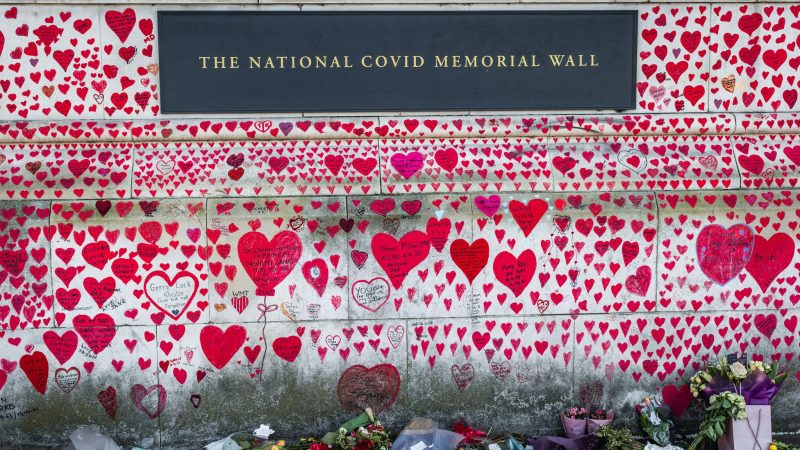
As the entire country will have seen, the Telegraph last week started publishing Matt Hancock’s leaked WhatsApps. They confirm what families bereaved by Covid 19 already knew; time and again, the government failed to follow the science when making life-and- death decisions about how to tackle the pandemic.
For families like Lobby Akinnola’s, these revelations are unsurprising and deeply painful. Lobby’s father contracted Covid at work, without the protection of PPE, and died at home because NHS 111 operated on a racially-biased triage system (Mr Akkinola’s lips did not turn blue).
While implications of the messages are debated in the media, the WhatsApps undoubtedly spell out the importance of the Covid 19 Inquiry. They not only confirm mistakes made, they are a reminder of how important it is that evidence relating to the deaths of over 219,400 people should be relayed to the bereaved in the formal and respectful setting of an Inquiry hearing, not via twitter or a Telegraph subscription.
Political attention has returned to the Covid 19 Inquiry. Keir Starmer recently raised the Inquiry in PMQs, calling on the government to do all it can to assist the Inquiry so that it is in a position to report back by the end of the year. Covid 19 Bereaved Families have also called for the Inquiry to make interim recommendations so that changes can be made to save lives as soon as possible. Too often, the inquiry process has been marked by delays in justice and government inaction. We have learnt this from our fellow campaigners for justice in the Hillsborough Inquiry and Grenfell Inquiry. However, what we have also learned from their experiences is that the success of an inquiry hinges not on speed, but on the degree to which families are able to effectively participate in inquiry proceedings.
As things stand, bereaved families feel increasingly marginalised by the Inquiry. “Every Story Matters”, the listening exercise through which the inquiry intends to gather the experiences of the general public during the pandemic, is unfit for purpose. The delivery of the project has been outsourced to companies such as 23Red and M&C Saatchi, both of whom were commissioned by the government to deliver public health messaging during the pandemic. To families bereaved by Covid 19, many of whom are deeply concerned about the effectiveness of public-health messaging during the pandemic, this represents a clear conflict of interests. Unsurprisingly, it, has discouraged many bereaved families from participating in the listening exercise at all.
Conflicts of interest aside, a ‘listening exercise’ is no substitute for bereaved family members sharing their personal testimonies in Inquiry hearings. To get to the bottom of what went wrong and how it went wrong, the Inquiry must consider a diverse range of insights and perspectives. The experiences of those who suffered the greatest loss during the pandemic, whose loved ones were failed by the very systems designed to protect them, must be front and centre of the Inquiry if the Inquiry is to illuminate blind spots and prevent the same mistakes from happening again. That is why it is vitally important that lawyers representing bereaved families are able to question key government decision makers directly, and are able to suggest expert witnesses to give evidence to the Inquiry. As demonstrated by recent ONS data almost all minority ethnic groups suffered disproportionate mortality rates from Covid 19. Despite this, the Inquiry continues to ignore our calls for them to instruct an expert in structural racism to give evidence to the chair and help it examine conditions that have fed and will continue to feed racial inequalities in health outcomes in this and future pandemics.
No family wants to be involved in a public inquiry, and our families face an upward battle. Assurance from the Labour Party, as a government in waiting, that they will implement inquiry recommendations to save lives would make the fight for justice easier and more hopeful. The Labour Party must also take action now to prevent covid 19 deaths, such as by committing to bring about a public spaces air ventilation bill, improving statutory sick pay provision and restoring free universal access to covid testing.
The success of the Covid Inquiry depends on these changes taking place, and the likelihood of that happening depends on the willingness of politicians and the public to stand with bereaved families, and recognise the Covid 19 Bereaved Families for Justice cause as their own. For families bereaved by Covid 19, the worst has already happened. Nothing will bring their loved ones back. But if the Inquiry is willing to learn from the experiences of those who have suffered the most, the British public will be safer when the next pandemic hits. The 219,449 lives lost to Covid 19 deserve to be honoured in the Inquiry, and in the lives the Inquiry’s recommendations will go on to save.




More from LabourList
‘Labour council candidates – it’s tough, but all is not lost’
‘Labour won’t stop the far right by changing leaders — only by proving what the left can deliver’
‘Cutting Welsh university funding would be economic vandalism, not reform’